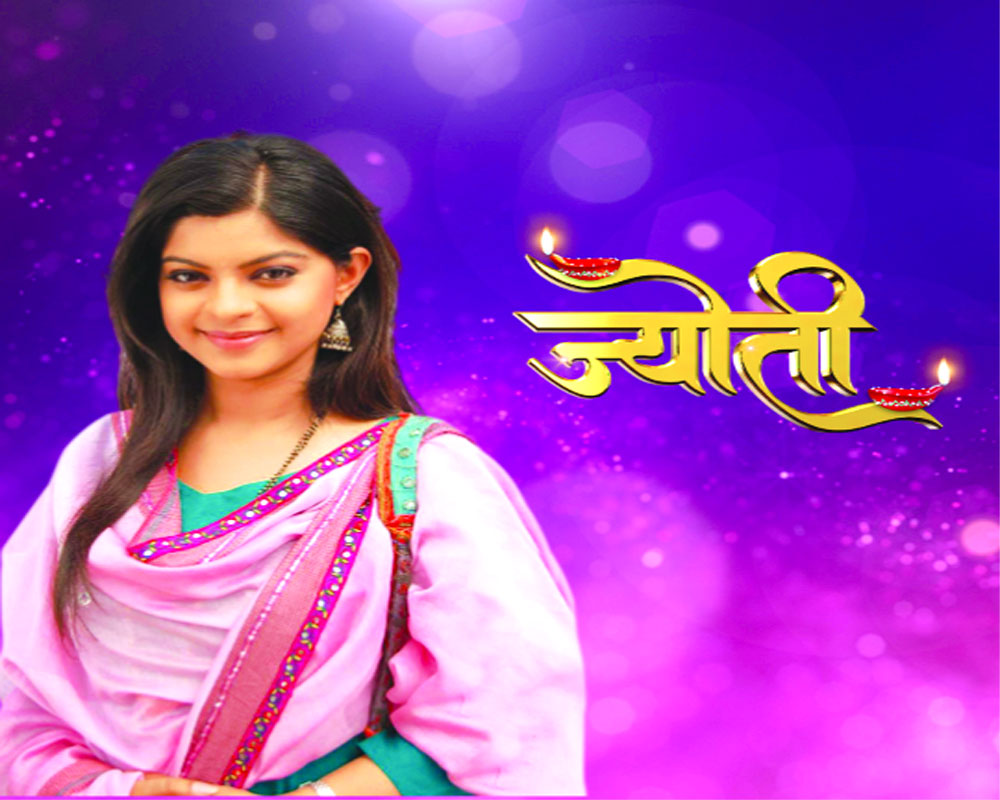The rerun of Jyoti on Dangal TV is all about a woman’s journey and the sacrifices she makes, her courage and how she stands proud despite the problems she faces, says SHALINI SAKSENA
It is not very often that one gets to see a show that talks about a woman’s courage in the face of an adversary. Most of the serials are the usual saas-bahu drama and after some time, each show ends up along the same storyline. However, Jyoti that aired back in 2009-2010, stood out for a few reasons. First, it showed the lead protagonist as a very strong character. Second, it sent a message across to women that despite roadblocks, it is possible to stand tall and proud.
Interestingly, the story of Jyoti is based on a real-life person — unfortunately, she died many years back. Writer Purnendu Shekhar tells you that when the makers approached him to write, the first thing he thought about was to write a story about this brave and strong woman who tied rakhi to him. “When the makers asked me to write a story, her story was waiting to be told. She was sister's friend and colleague. So, she was a sister to me as well,” Shekhar says.
He tells you that it is sad that TV serials have become regressive. But there is a reason for this. Back in the 90s, the shows on DD were watched by a select few because owning a TV was a luxury. Hence, the content also matched the intellect of the niche. “Today, while it is good that every household can afford a TV, it has also meant that the content that is being shown caters to the taste of the masses hence, the usual saas-bahu dramas. Also, soon the makers and channels realised that people were looking for drama and twists and turns. The end result was that though the shows started on a good note, they all went the drama way. Take Kyunki Saas Bhi Kabhi Bahu Thi and Kahani Ghar Ghar Ki. Both Tusli and Parvati are such strong characters. Yes, they were housewives but had a mind of their own. It was the drama for the sake of it and the unbelievable drama made the show’s look regressive and gave them the tag of saas-bahu shows. Regression became the core of drama,” Shekhar explains.
There is a reason for this and he blames the viewers. “The educated viewers who used to watch TV earlier have switched to OTT platforms and the target viewership which television is catering today is of the viewers who still don’t have much excess to OTT platforms. For them, television is still the cheapest and the most convenient source of entertainment. Most of these viewers belong to lower economic strata with low rates of education too. So, broadcasters and makers are targeting those mindsets. Hence, the stories are full of unreal, unbelievable drama. We can blame the viewers as well as the cut throat competition amongst the broadcasters,” Shekhar says.
The advantage with Jyoti was that since the character was based on a true person, it was easier for the writers to be as true to her life as possible. Also, there were twists and turns in her life. It was easier to not dramatise and yet not give away everything. “Some of the dialogues in the show have actually taken place and were spoken by my mother and sister to her,” Shekhar says and tells you that one must watch the rerun of Jyoti for one simple reason.
She is such a strong character. The message that she gives is that even in the worst-case scenario one must stand tall, proud and strong,” Shekhar says.
Sneha Wagh who plays the lead in the show says that it would be wrong to say that television doesn’t do woman-centric shows. “All the shows that are shown for the women. TV is mostly for and about women because a large portion of viewership comes from women. TV is a woman-oriented platform,” Wagh says. She tells you that to play Jyoti was not something that she had planned but it was a big opportunity. “Everything was happening around me and it was not something that I had a choice. I said yes to whatever good that came my way,” she says.
“This show is off the normal track. Also, the character is relatable to today’s scenario and not the usual saas-bahu drama. Her character, since it is based on a real-life person, makes what happens in the show so much more than the drama that one gets to see,” Wagh says.
The hitch that TV faces when it comes to air women-centric shows even though the majority of the audience is women is because TV is all about family viewing. “The entire family sits and watches TV and it would be wrong to compare the content that one gets to see on the OTT platforms and small screen,” Wagh tells you.
However, it doesn’t mean that one can’t show more such shows that portray women in a strong light that are based on real-life women. “It is important to send a message to even the women sitting at home in small towns and villages. We don’t always show women all decked up. There is a need to air shows where women are powerful. We have a patriarchal society and will continue to be so unless we change our mindset. Shows like Jyoti will go a long way to change this thinking,” Wagh says.
























